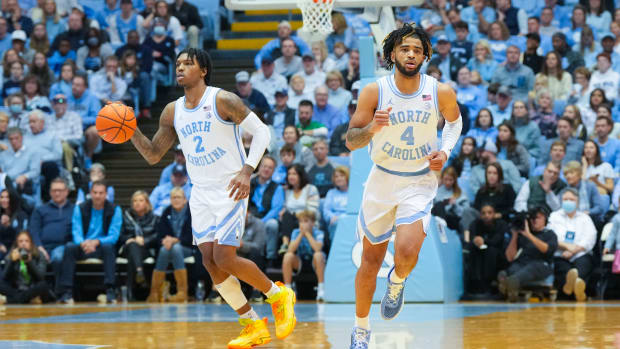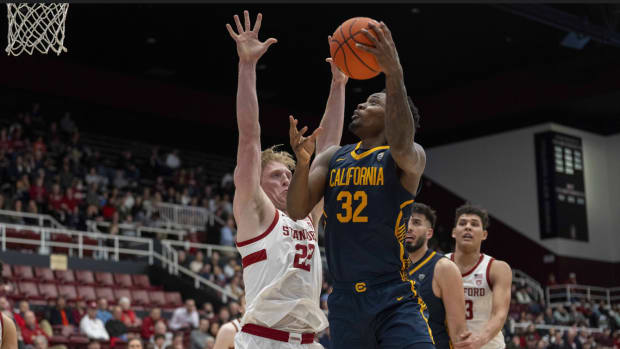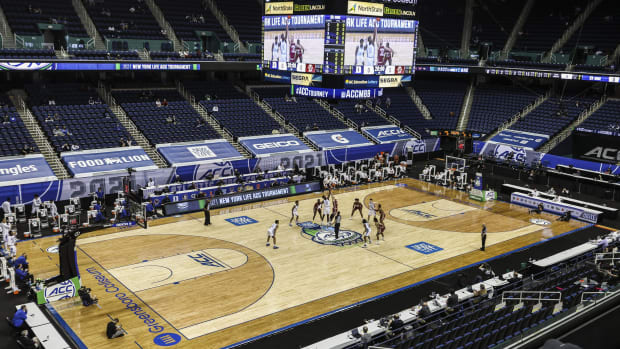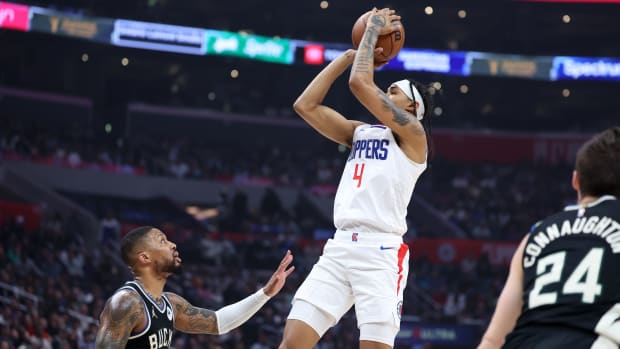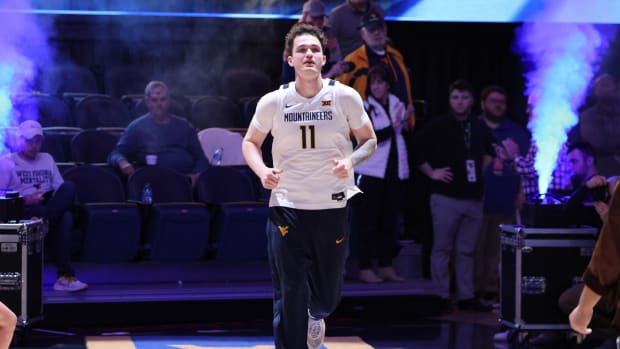NCAA President Mark Emmert Came Ready To Fight
Mark Emmert didn't shy away from confronting reporters at Thursday's Final Four press conference. (David J. Phillip/AP)
ATLANTA -- There probably were valid points buried somewhere in NCAA president Mark Emmert's 16-minute, over 2,500-word opening statement/monologue/filibuster here at the annual Final Four press conference, but the biggest takeaway from the 45-minute session was the embattled president's aggressive defensiveness.
On three occasions during the question-and-answer portion of the event, Emmert took various levels of shots at national reporters, saving his choicest barbs for CBSSports.com's Dennis Dodd, who has written previously calling for Emmert's job. In the middle of responding to a question from Dodd about whether Emmert feels like a lightning rod for criticism of the NCAA, Emmert interjected "By the way, thanks for the career advice. [I] kept my job anyway." Oddly, that retort was edited out of the official transcript released afterward.
Later he got into it a bit with New York Times reporter Joe Nocera, who asked a question about Emmert's acceptance of general studies majors and questionable course plans. In the middle of a lengthy response, apparently in response to Nocera trying to follow up with a question, Emmert interjected "Please let me finish, Joe. I know you disagree. We all know you disagree with me. ..," before finishing his answer.
He finished his performance, though, by proverbially dropping the mic, blurting to Dodd as he walked off the stage after the final question, "I'm still here. I know you're disappointed, but here I am."
It was clear from the outset that the jacket-less Emmert had a plan for the presser, and that he clearly reads the critiques of his performance, not only as NCAA president but also in his prior stops at universities. It was feisty, but in an oddly defensive way that didn't make him come off as very much of a leader.
Like anyone in charge, Emmert (and the NCAA) get a lot more attention for what they're doing wrong than what they did correctly, and an enormous amount of attention is placed on college's two major revenue sports when the NCAA organizes several dozen sports across more than 1,000 colleges and universities at three different levels. It's also clear reporters were here today to ask tough and, in some cases, impossible to answer questions.
But the disastrous investigative failures in the UCLA and Miami cases are meaningful and relevant as more and more discussion swirls about NCAA reform. Emmert needed a strong performance in front of the national media and didn't deliver it.
The best summation may have come from Harvard senior @JohnEzekowitz via Twitter.


